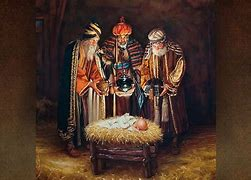
The tradition of gift-giving has deep roots in various cultures and religions. In the Christian context, one of the most influential stories is that of the three Wise Men, who brought gifts to the baby Jesus. These gifts were gold, frankincense, and myrrh, each with symbolic meaning: gold represented kingship, frankincense represented divinity, and myrrh represented mortality.
However, the tradition of giving gifts extends beyond this story. In many ancient cultures, gifts were exchanged during festivals and celebrations as a way to show appreciation, respect, and love. For example, during the Roman festival of Saturnalia, gifts were exchanged as a part of the festivities. This festival, which took place in December, influenced modern Christmas traditions.
Over time, these practices merged and evolved, and Western culture adopted the custom of giving gifts during Christmas as a way to commemorate the gifts of the Wise Men and to express affection and generosity toward loved ones.








